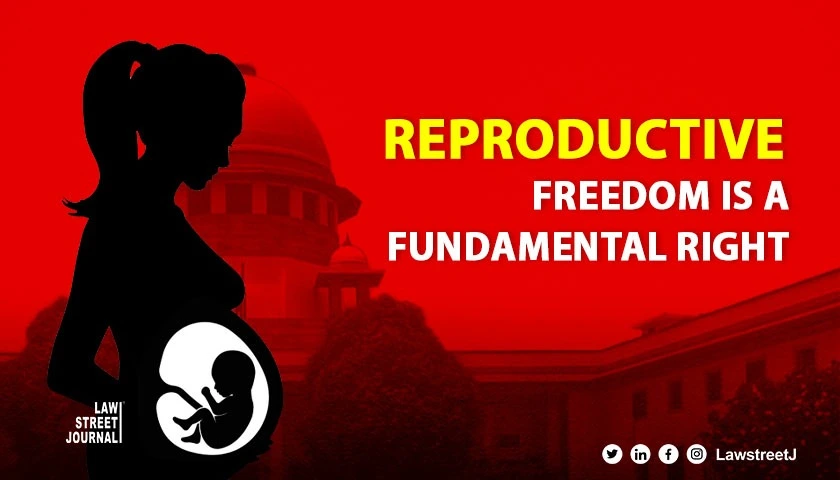NEW DELHI: The Supreme Court has said the right to choose and reproductive freedom is a fundamental right under Article 21 of the Constitution so where the opinion of a minor pregnant person differs from the guardian, the court must regard the view of the pregnant person as an important factor while deciding the termination of the pregnancy.
"The consent of a pregnant person in decisions of reproductive autonomy and termination of pregnancy is paramount. In case there is a divergence in the opinion of a pregnant person and her guardian, the opinion of the minor or mentally ill pregnant person must be taken into consideration as an important aspect in enabling the court to arrive at a just conclusion," a bench led by Chief Justice of India D Y Chandrachud said.
The bench, also comprising Justices J B Pardiwala and Manoj Misra, on April 28 recalled its previous April 22 order for abortion of her over 30-week foetus of a 14-year-old rape victim as her mother changed her view.
Releasing its detailed judgement, the bench said in the case, the clarificatory report of April 3, 2024 fell into this error by denying termination on the ground that gestational age of the fetus is above twenty-four weeks and there are no congenital abnormalities in the fetus.
"The medical board, in forming its opinion on the termination of pregnancies must not restrict itself to the criteria under Section 3(2-B) of the Medical Termination of Pregnancy Act but must also evaluate the physical and emotional well being of the pregnant person...When issuing a clarificatory opinion the medical board must provide sound and cogent reasons for any change in opinion and circumstances," the bench said.
"The provision Section 3(2-B) is arguably suspect on the ground that it unreasonably alters the autonomy of a person by classifying a substantially abnormal fetus differently than instances such as incest or rape. This issue may be examined in an appropriate proceeding should it become necessary," the bench felt.
In the present case, the view of X and her parents to take the pregnancy to term are in tandem, the bench noted.
In the case, the court said bearing in mind the detailed discussion which took place, the parents of the minor have chosen not to press ahead with the termination of the advanced pregnancy at the present point of time.
"This decision, should, in our view, be accepted," the bench said.
Going through the Medical Termination of Pregnancy Act, the bench pointed protected the registered medical practitioner and the medical boards when they formed an opinion in good faith as to the termination of pregnancy.
"The opinion of the RMP or the medical board, as the case may be, is indispensable under the scheme of the MTP Act. This inadvertently gives the power to the RMP or the medical board to stand in the way of a pregnant person exercising their choice to terminate the pregnancy. When there is fear or apprehension in the mind of the RMP or the medical board it directly jeopardises the fundamental freedoms of pregnant persons guaranteed under the Constitution," the bench said.
However, the scheme of the MTP Act and the steady line of application of the law by the courts has made it clear that the RMP or the medical board cannot be prosecuted for any act done under the MTP Act in good faith, the bench said.















